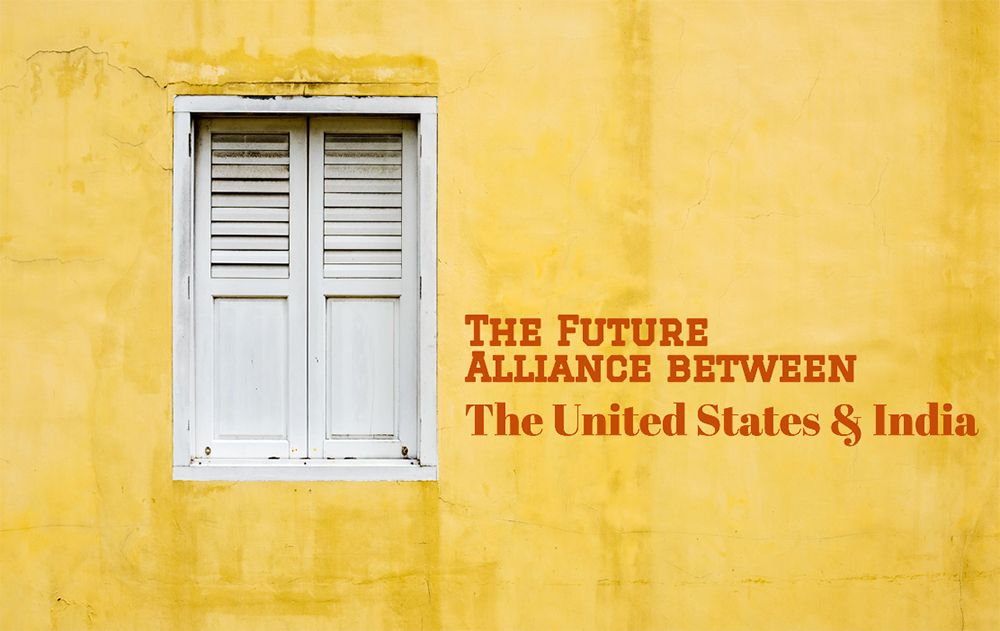While the United States has numerous strategic partner nations across the globe, none will be more important going forward than India. As China becomes a less favorable partner on the world stage due to their aggressive foreign policy and authoritarianism at home, India has emerged as a strong alternative partner.
India recently surpassed the United Kingdom in GDP, becoming the world’s fifth largest economy. Their growth isn’t finished either; India continues to exponentially gain wealth. According to The New York Times they remain on track to economically grow 7% or more this year, double the global growth. The BBC reports that by 2050 they will become the world’s second-largest economy accounting for 15% of the world’s total GDP.
India’s giant population of 1.4 billion allows for an equally giant workforce which beneficially includes 600 million people under the age of 25. This injects youthful energy into the workplace and creates a foundation for the future. According to the BBC, no country on earth has more young people.
The U.S. and India already work together on a number of issues. According to the U.S. State Department, U.S. Indian bilateral trade in goods and services reached a record $157 billion in 2021. Furthermore, Indian investment in the United States totaled $12.7 billion, supporting over 70,000 American jobs while 200,000 Indian students contribute $7.7 billion annually to the U.S. economy.
Together they have worked to collectively promote global security, stability and economic prosperity through trade, investment, peace and connectivity. On defense, the U.S. and India cooperate within the so-called Quad partnership, including the United States, India, Japan and Australia. Together they are supporting a free and open Indo-Pacific region while countering China.
Despite this pre-existing cooperation there is still room to grow. To start, the U.S. and India should promote a more transparent defense planning dialogue, share more intelligence and curb the violent actions of autocratic regimes. India’s neutral stance on the war in Ukraine is concerning and if they want to promote global peace they’ll need to take an opposing stance. As of late India already seems to be distancing themselves from the Russian regime.
Stronger bilateral economic ties and American resources could also enhance India’s productivity, expand its technological frontier and spur further economic liberalization. Meanwhile the United States would gain access to India’s lower-cost exports, relatively cheap labor and vast domestic market, increasing America’s international competitiveness. This would inevitably improve both the U.S. and Indian economies, and add further competition in the region to a resilient and domineering Chinese presence.
As India looks more and more like a future ally on trade and defense, America needs to be cautious of the quickly deteriorating democratic practices in the country. The BBC found that Prime Minister Narendra Modi’s leadership has led to a decline in respectable practices.
Under his watch there has been increased pressure on human rights groups, intimidation of journalists and activists and a spate of attacks, especially against Muslims. This, they add, has led to a deterioration of political and civil liberties in the country. The U.S.-based non-profit Freedom House announced that India is a partially free democracy rather than an entirely free one.
There’s also still the existence of caste discrimination. According to The Economist, this system divides the populace based on the hereditary classes of Hindu society, making some groups more societally favorable than others. Laws have been implemented to lessen the hierarchy issue, but it still exists in many forms where discrimination is even encouraged by several politicians.
These issues should not be ignored if the U.S. wants a long-term and fulfilling relationship with India. The U.S. needs to be clear that they are against these hindrances to freedom and more needs to be done about it. We too have experienced backsliding in our democracy, and together we need to learn lessons and implement fixes in both nations.
The fates of the U.S. and India are heavily intertwined. For the relationship to flourish economic stimulation will be important but principles should be too. This needs to be made known.




